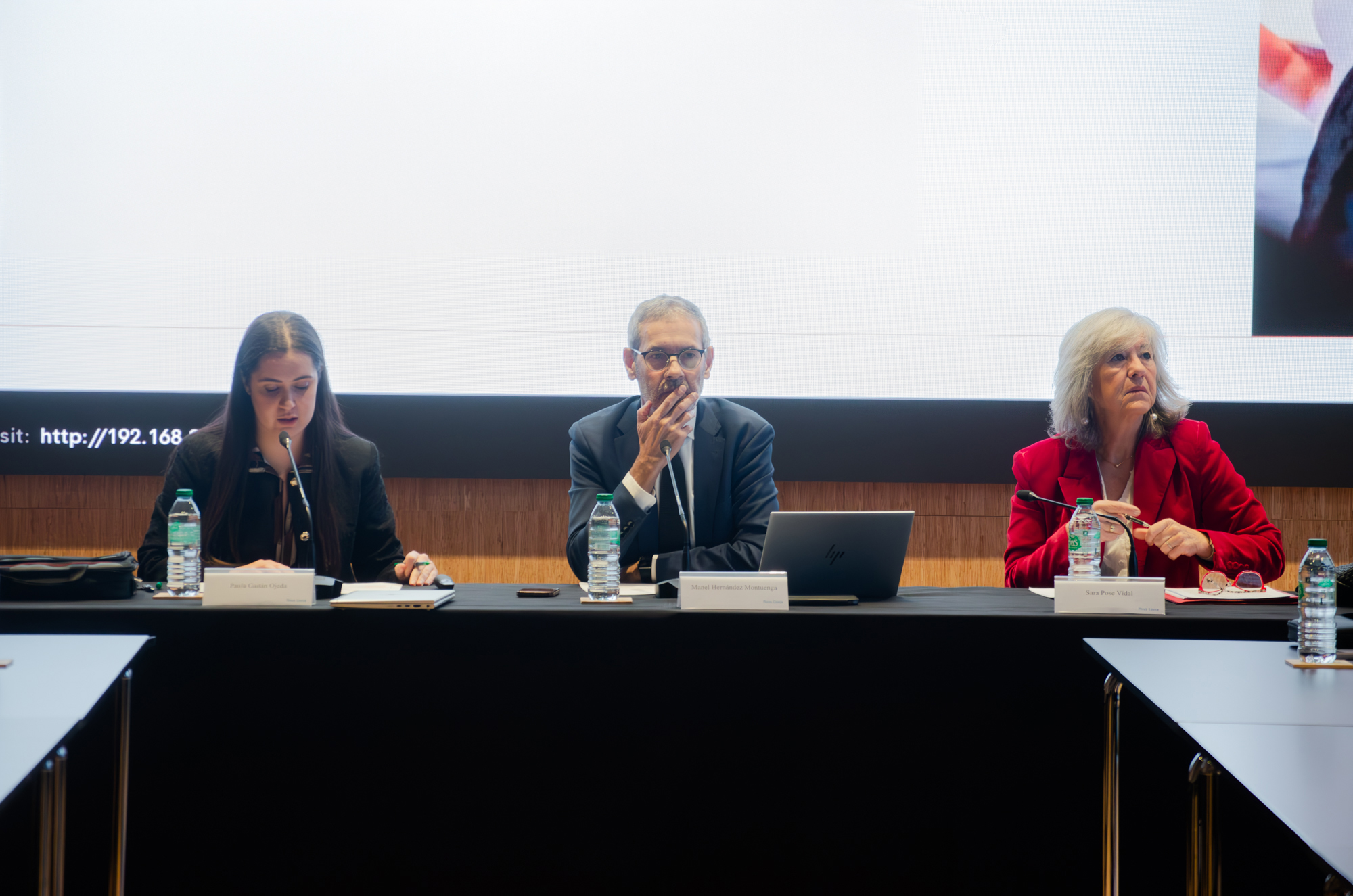Pérez-Llorca’s Employment, Compensation and Benefits practice held the ‘Labour Law Updates 2025: Severance Pay’ session in Barcelona, with Manel Hernàndez and Paula Gaitán, partner and lawyer of this practice area, and Sara Pose, judge of the High Court of Justice of Catalonia.
Manel Hernàndez opened the seminar by introducing the speakers and gave the audience an overview of each of the topics up for discussion. Paula Gaitán began the discussion by analysing the main changes introduced by Organic Law 1/2025 of 2 January. Among other key points of the law, she explained the inclusion in the Workers’ Statute of contract termination for non-payment or late payment of wages, consolidating the existing case law on this matter. Gaitán noted the correction of errors in Organic Law 2/2024, restoring protection against dismissal when requests are made for adaptations to working hours and in the case of special leave under Article 37.3.b of the Workers’ Statute.
With regard to Social Security, Gaitán highlighted the new additional contribution that entered into force on 1 January 2025, through Article 19 bis of the General Law on Social Security (“LGSS”). This obligation will apply to salaries that exceed the maximum contribution base, with contribution rates that will be reduced for 2025. “This measure means an increase in labour costs, which ends up affecting the sectors with the highest salaries,” said Gaitán.
Hernández addressed the main developments in the area of dismissal introduced by Organic Law 1/2025, which establishes measures to improve the efficiency of the public justice service. He highlighted the new possibility for representatives of the Justice System to summon parties in advance for court conciliation acts, as well as the obligation to present documentary and expert evidence at least 10 days before the hearing according to article 82.5 of the Law Regulating Labour Courts. “This change implies anticipating the defence strategy of the other party, a circumstance that alters the current balance of the proceedings,” said Hernández.
Turning to recent court rulings on dismissals, the Pérez-Llorca partner explained the impact of the Fourth Chamber of the Supreme Court of Justice’s judgment of 18 November 2024, which establishes the prior hearing of the employee as a formal requirement in cases of disciplinary dismissal. According to this ruling, based on Article 7 of Convention 158 of the International Labour Organisation (“ILO”), the lack of a hearing renders the dismissal unfair, regardless of the severity of the termination.
To conclude the session, Sara Pose analysed the current status of additional severance payments, focusing on whether or not the compensatory system is in line with the various international treaties signed by Spain. In this respect, she acknowledged that the severance pay systems in Europe, including Spain’s, have been influenced by the ratification of the European Social Charter: “Although the European Committee of Social Rights has stated that systems such as those in Italy, France and Finland do not comply with Article 24 of the Charter, this has not resulted in legislative changes.”
In this regard, Pose pointed out that, although there is no legal precept that recognises severance pay in addition to the amount awarded, some courts have admitted that this may be possible in situations where fraud or an abuse of contract termination is involved, as in the case of the High Court of Justice of Catalonia’s judgment of 30 January 2023. This judgment recognised additional severance pay in cases where the damages exceeded those compensable under Article 56 of the Workers’ Statute. However, this ruling was partially overturned by the Supreme Court in its judgment of 19 December 2024, which concluded that Article 10 of ILO Convention 158 is not directly applicable in Spanish law. Furthermore, the judgment did not assess the suitability of the tax system under Article 24 of the European Social Charter, as the dismissal took place prior to the ratification of the Charter. The judge concluded that the system of severance pay rates in relation to Article 24 of the European Social Charter is likely to depend on whether the decisions of the European Committee of Social Rights are considered binding. “There are resolutions of state institutions, such as the Council of State, which affirm the binding nature of the decisions of the European Committee of Social Rights,” noted Pose.
